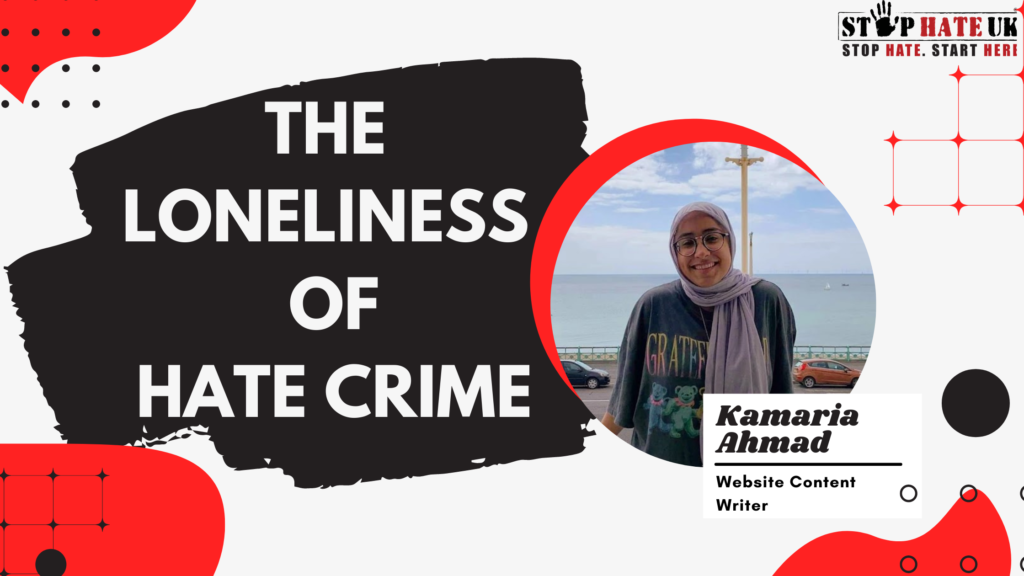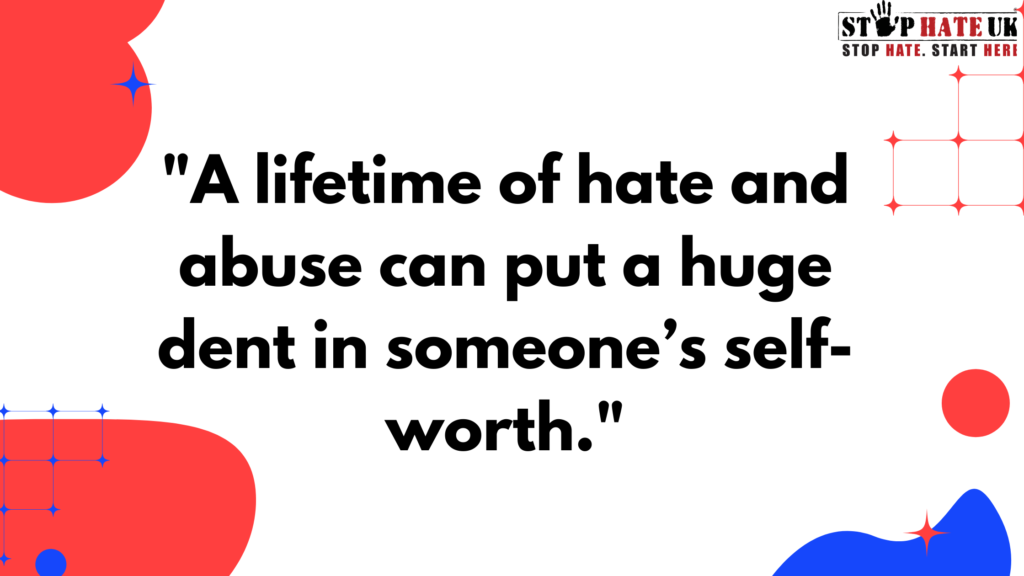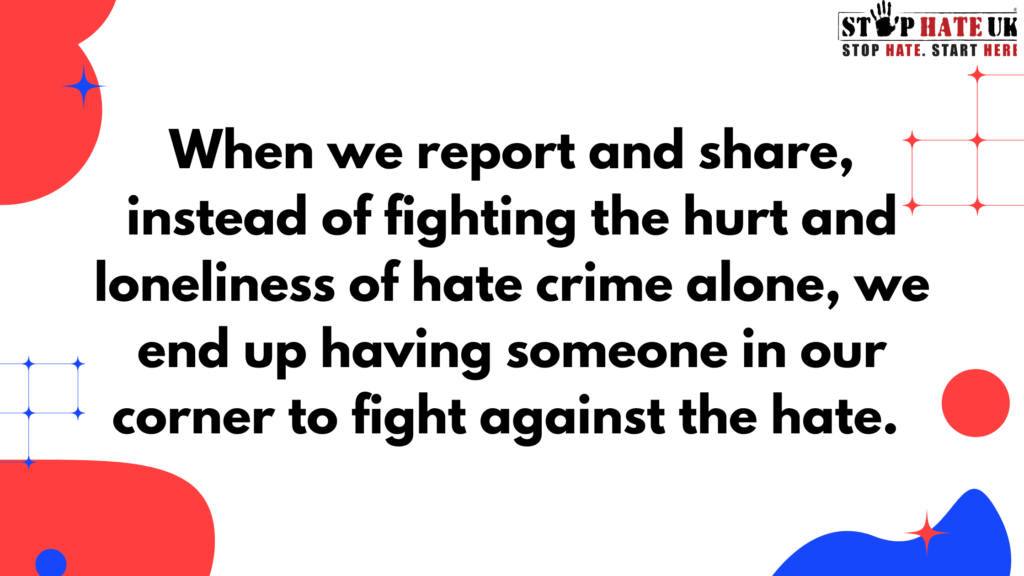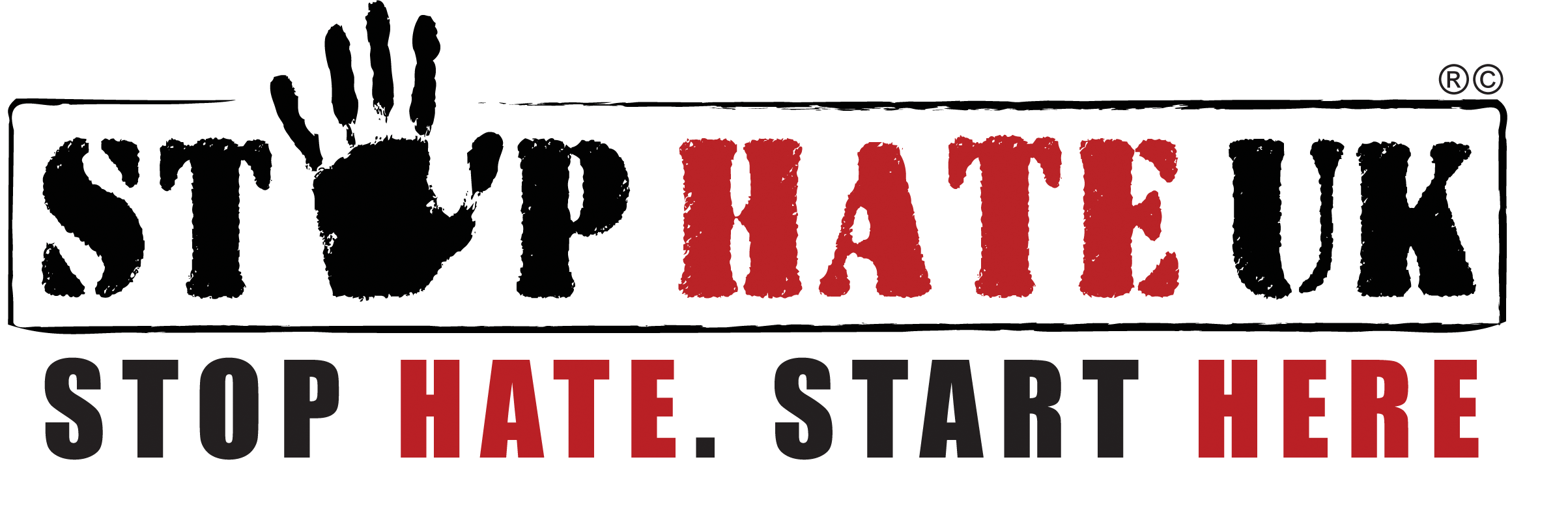News
The Loneliness of Hate Crime
Posted on
by Kamaria Ahmad
Hate and discrimination in all forms exists everywhere
As a South Asian Muslim woman, I have countless incidents of hate and discrimination that I have faced in my life. I grew up in Hong Kong and moved to the UK in 2016. Hate and discrimination in all forms exists everywhere, because I have experienced it everywhere I’ve lived.
From when I was as young as 5 years old, I can remember a time when someone said something or did something to me for being different. When my primary school male classmates made sexist jokes about how girls aren’t as smart as boys, when a coworker said to me “I respect you, but I don’t respect Muslims”, when again my classmates made terrorist jokes about Muslims in class, or when at the age of 14, a man spat on my face when I was walking home from school.
I never told my parents, siblings, friends, or teachers about that last incident. When it happened, I ran away from the man, wiped my face with a tissue paper, went home, and then continued with my evening as if nothing had happened. Maybe I was in shock, or maybe I was ashamed and embarrassed that something like that had happened to me

Why do so many people face discrimination and hate incidents but don’t act against it?
I have many incidents of hate and abuse to look back on and chances are I am the only person, the person who experienced it, who knows about it. You may be thinking, why didn’t I tell anyone or do anything about it? Why do so many people face discrimination and hate incidents but don’t act against it?
A lifetime of hate and abuse can put a huge dent in someone’s self-worth. You become numb and daily discrimination becomes part of your life, to the point that you expect something to happen every time you step out of your house. Incidents don’t always have to be overt, verbally, or physically, they can be micro-aggressive too, which are harder to deal with because they can be so subtle.
There is a part of you that starts to believe that you really don’t belong, or that you are inferior and insignificant, that there really is something wrong within you. Sometimes you don’t even want to admit to yourself that something happened, like I did when that man spat on me, because on top of someone showing you “you don’t matter”, not being able to do anything about it is an extra blow to your self-esteem. You start to believe the hate against you and develop self-hatred.
This is why experiencing hate and discrimination can be extremely isolating and lonely. You can feel incredibly vulnerable and weak for not being able to do anything. You can feel violated for having your dignity stepped on so casually and freely. And the hate can be so immense, that you let it consume your sense of self and end up doing nothing about it.

We need to speak up about discrimination or hate incidents we experience
Working at Stop Hate UK has taught me that we need to speak up about any discrimination or hate incidents we experience because if authorities and communities don’t know that hate crimes are happening, there is nothing we can do to put an end to it. We cannot solve what we cannot see.
Most importantly when you tell someone – you are not alone anymore. There is someone to talk to, to share your feelings with about what happened. Keeping things to ourselves, especially things that hurt us can be extremely damaging to our mental well-being. Of course, when we decide to share is completely up to us, but eventually we do need to get it all out, just to feel lighter and to have someone counteract the hate with love and support.
When we report and share, instead of fighting the hurt and loneliness of hate crime alone, we end up having someone in our corner to fight against the hate.
There is no shame in admitting we need help. We are not victims, we are survivors.

